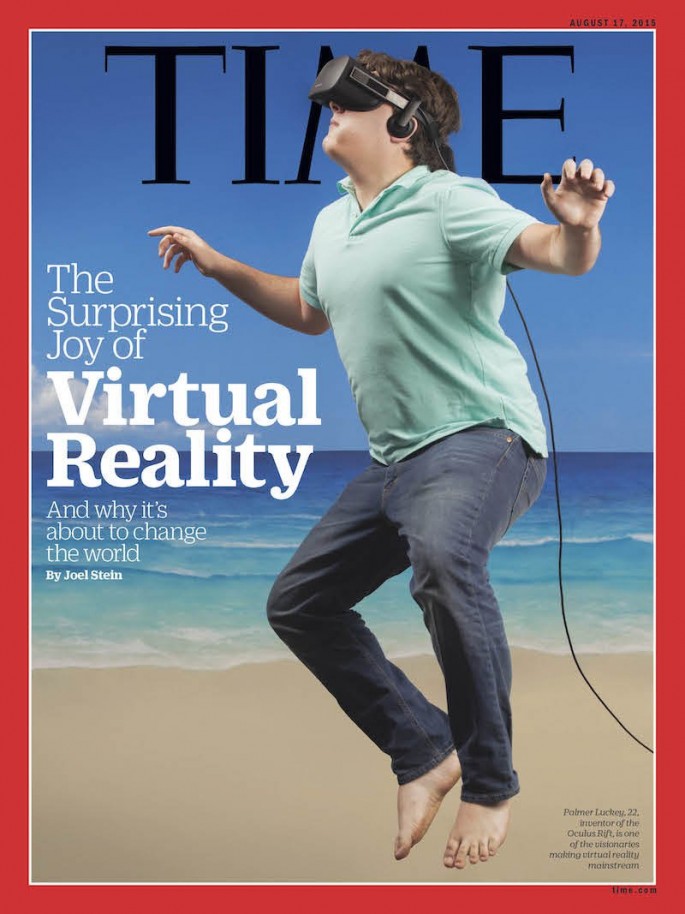Time magazine's latest cover story puts a spotlight on virtual reality (VR), featuring an image of Oculus VR founder Palmer Luckey wearing a VR headset while in a goofy flying, semi-squat position, which has launched parodies across the Internet ranging from a NASA shuttle launching to "Jurassic World." While many tech enthusiasts are quite upset about the cover picture and article, the situation indicates that VR could become the next big technological breakthrough since social media.
The photo is clearly unflattering, as suggested by the number of spoofs that have popped up. Many netizens have taken it with a grain of salt. In fact, even Luckey created a spoof on his Reddit account that featured him in a flock of penguins.
However, in the article's first two paragraphs it is explained that Luckey is different from other Silicon Valley "nerds" because he did not attend a top-ranked university or write amazing source code. Instead, he is cheerful and his speech is "easy to understand."
Many tech-savvy people were offended because a pseudo-insult was used to make the compliment. It also brought up old stereotypes.
However, the Time magazine cover seems to reveal the biggest problem of virtual reality. It looks awkward.
VR enthusiasts are thrilled about the experience the tech provides, but explain that it is difficult to put into words. Someone has to try it first-hand.
It's arguably the same problem faced by Google Glass and Segway but exponentially greater, according to The Washington Post. Wearing the bulky gear in public seems to disconnect people from society.
However, arguably the main function of VR headsets and other gear is to transport users' psyches to "sub-social" online behavior, according to Tech Crunch. By definition the virtual world becomes reality.
Luckey earned $2 billion when he sold his company to Facebook. This fact highlights the unique experience that VR tech provides, and that it will likely become an everyday tool within time. However, VR's popularity will not take off until consumers get past how others look while experiencing it.
Luckey seems good-natured about the Time cover and the publicity it has received. He tweeted that he loves Photoshop.



























